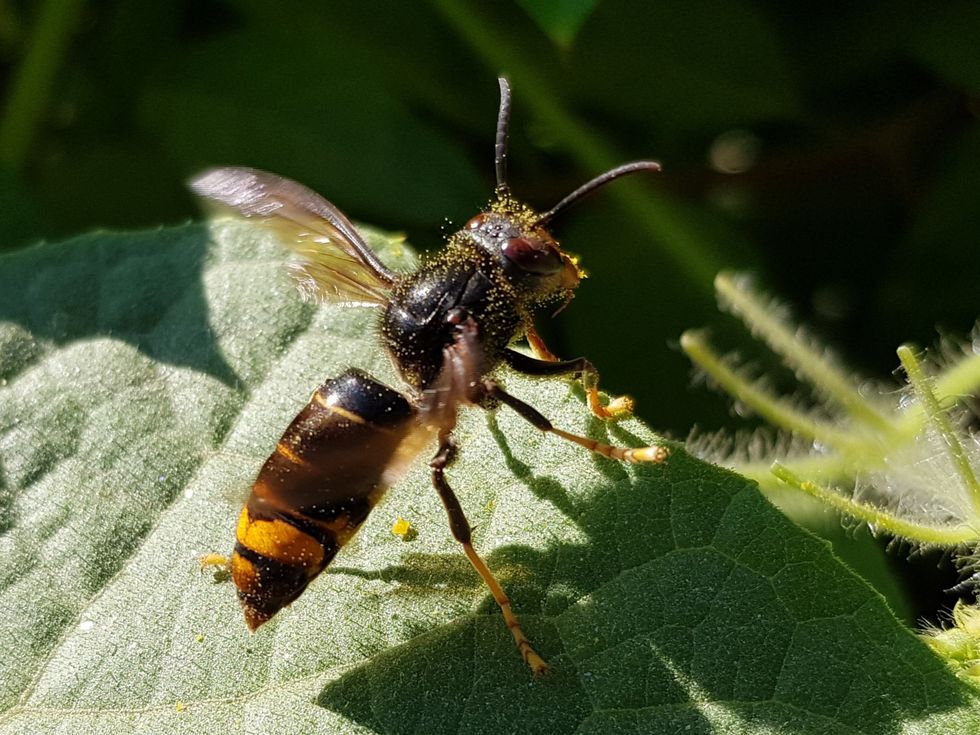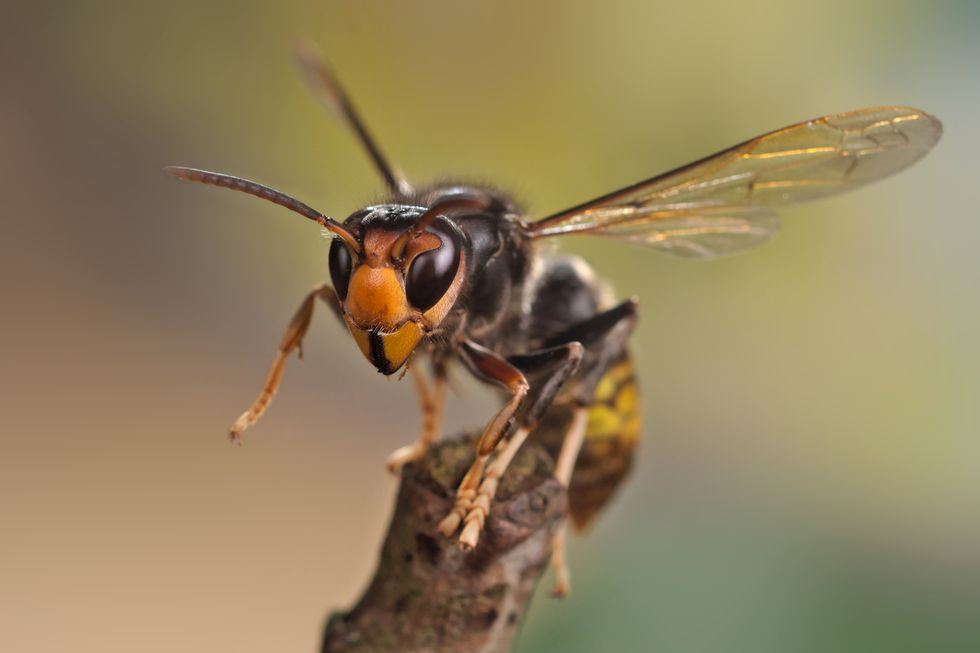
Britons are being warned about an invasion of deadly Asian hornets after 10 people were attacked and required urgent treatment.
Sightings in the UK have sparked fears they are spreading this summer.
Beekeepers and members of the public have been warned to remain vigilant by Defra after Asian hornets were spotted in the Dover area in Kent.
It comes after 10 people in the crown dependency of Jersey were stung by the "killer" hornets but all survived. Meanwhile at least five people have died following stings in France, with more victims in other European countries.

The hornets' venom can cause people to go into anaphylactic shock, resulting in death within minutes of being attacked unless they receive urgent medical treatment.
Following the sightings this week in Kent, experts say they are monitoring the entire south of England.
It is the sixth confirmed UK mainland sighting since April, after an Asian hornet was found near Newcastle-upon-Tyne.
The insect is known to be very defensive of their nests, so could sting in "mass attacks" if they feel threatened.
The deadly creatures also pose a huge risk to honey bees, with a single group able to destroy a hive of 30,000 bees within just hours.
Defra’s Chief Plant and Bee Health Officer Nicola Spence said: “By ensuring we are alerted to possible sightings as early as possible, we can take swift and effective action to stamp out the threat posed by Asian hornets. That’s why we are working at speed to locate and investigate any nests in the area following the confirmed sightings in Kent.
“While the Asian hornet poses no greater risk to human health than other wasps or hornets, they can cause damage to honey bee colonies and other beneficial insects.
“Please continue to look out for any Asian hornets and if you think you’ve spotted one, report your sighting through the Asian hornet app or online. Asian hornet nests will be smaller at this time in the year but we are still asking people to be vigilant.”

Asian Hornet nests are built by a queen hornet in sheds or outbuildings but are also regularly found inside bird boxes.
The queens raise around 100 hornets while they stay within these nests for around six weeks.
After the nest is big enough, the hornets will leave and move to areas, such as taller trees, where larger secondary nests can be built.
Britons are being urged to take care and not to approach or disturb a nest but to take photos and follow any sole Asian hornets to help experts tracking flight paths leading them to nests which can be wiped out.
from GB News https://ift.tt/ofBhi8q

Britons are being warned about an invasion of deadly Asian hornets after 10 people were attacked and required urgent treatment.
Sightings in the UK have sparked fears they are spreading this summer.
Beekeepers and members of the public have been warned to remain vigilant by Defra after Asian hornets were spotted in the Dover area in Kent.
It comes after 10 people in the crown dependency of Jersey were stung by the "killer" hornets but all survived. Meanwhile at least five people have died following stings in France, with more victims in other European countries.

The hornets' venom can cause people to go into anaphylactic shock, resulting in death within minutes of being attacked unless they receive urgent medical treatment.
Following the sightings this week in Kent, experts say they are monitoring the entire south of England.
It is the sixth confirmed UK mainland sighting since April, after an Asian hornet was found near Newcastle-upon-Tyne.
The insect is known to be very defensive of their nests, so could sting in "mass attacks" if they feel threatened.
The deadly creatures also pose a huge risk to honey bees, with a single group able to destroy a hive of 30,000 bees within just hours.
Defra’s Chief Plant and Bee Health Officer Nicola Spence said: “By ensuring we are alerted to possible sightings as early as possible, we can take swift and effective action to stamp out the threat posed by Asian hornets. That’s why we are working at speed to locate and investigate any nests in the area following the confirmed sightings in Kent.
“While the Asian hornet poses no greater risk to human health than other wasps or hornets, they can cause damage to honey bee colonies and other beneficial insects.
“Please continue to look out for any Asian hornets and if you think you’ve spotted one, report your sighting through the Asian hornet app or online. Asian hornet nests will be smaller at this time in the year but we are still asking people to be vigilant.”

Asian Hornet nests are built by a queen hornet in sheds or outbuildings but are also regularly found inside bird boxes.
The queens raise around 100 hornets while they stay within these nests for around six weeks.
After the nest is big enough, the hornets will leave and move to areas, such as taller trees, where larger secondary nests can be built.
Britons are being urged to take care and not to approach or disturb a nest but to take photos and follow any sole Asian hornets to help experts tracking flight paths leading them to nests which can be wiped out.



0 Comments
Don't share any link